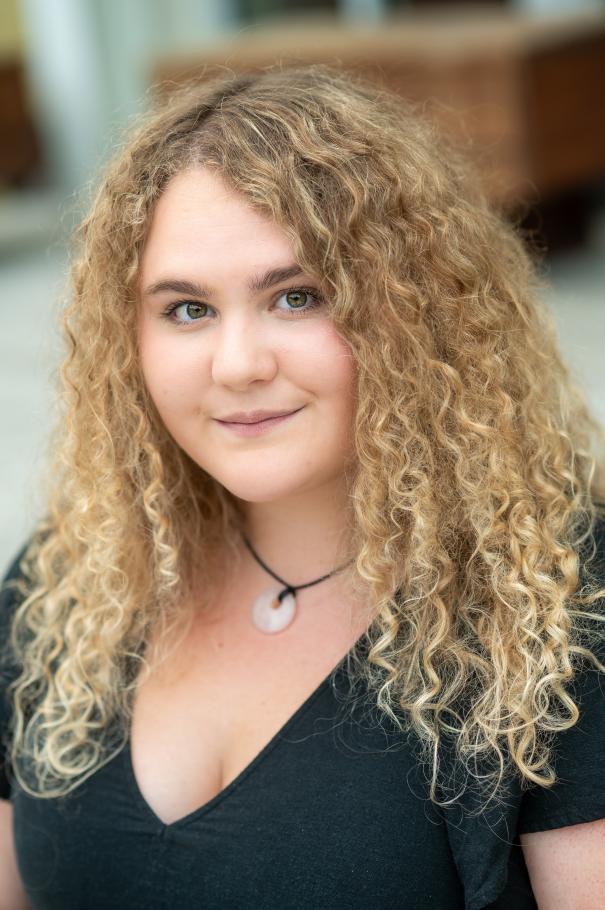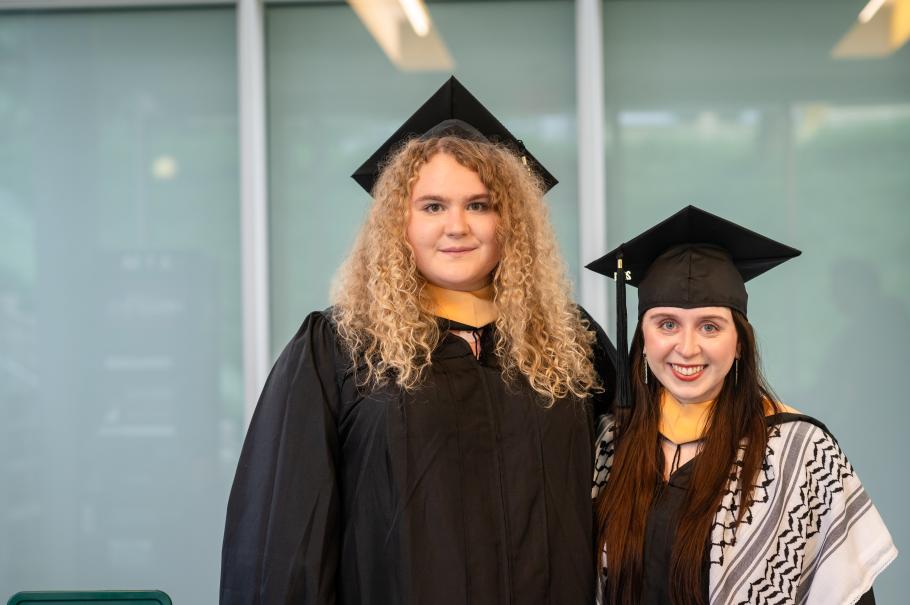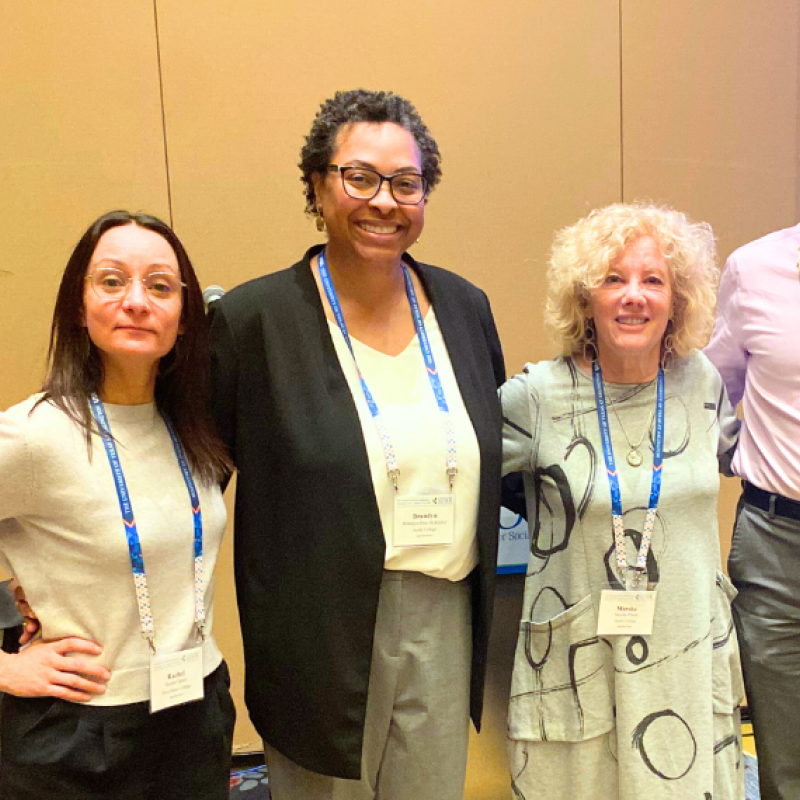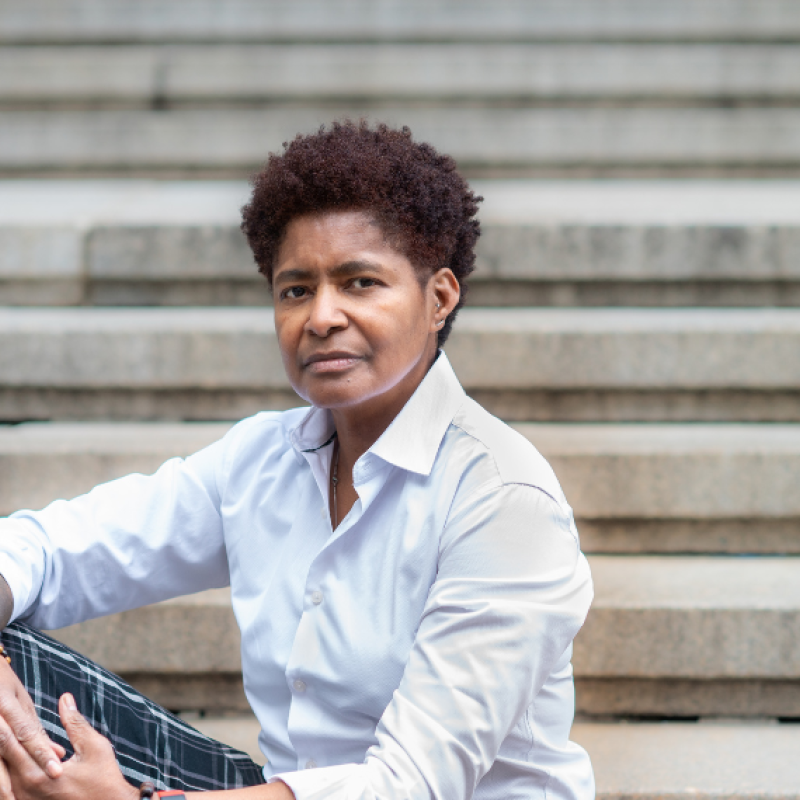When Taylor McCain graduated from Smith College in 2020, she had no idea she would return two years later to pursue her M.S.W. but that’s just what an unexpected job, a few recommendations from colleagues and trusting her intuition led her to do.
Graduating during the height of the pandemic with a degree in neuroscience and music, McCain’s options were limited. In addition to working as a part-time neuroscience research assistant, she accepted a position working in an elementary school where she discovered her interest in the intersection of neuroscience and mental health. After her second year working at the school, she asked her networks what program she should look into to develop her clinical skills further, and everyone told her: Smith SSW. She had always dreamed of returning to Smith College for graduate school because she had a wonderful undergraduate experience, but she hadn’t realized Smith offered an M.S.W. program.
“I didn’t know what clinical social work was. I was thinking about clinical psychology…I wanted a holistic view, which you don’t get as much in clinical psychology programs”.
McCain was excited to learn about Smith’s psychodynamic focus and holistic view.

“Once I got to SSW, I finally felt like I was getting the tools I so desperately wanted to have when working with kids.”
Smith SSW’s employment-based internship program allowed her to continue working with the students at the elementary school while beginning her M.S.W. at SSW. McCain said she was able to learn so much at her placement and to continue working with the same kids, who by the end of her career at Smith, she’d known for four years.
McCain notes that part of what drew her to social work was the possibility of integrating spirituality and intuition into her work. Her intuitive approach was supported by her supervisor, practicum faculty advisers and professors. McCain also brings her knowledge of neuroscience into crisis intervention and therapeutic approaches like play therapy, art therapy, and music.
McCain said that her SSW professors have been able to teach psychodynamic theory in digestible ways, naming some favorite classes as Neurobiology with Rebecca Castro, M.S.W. ‘07 and an expressive arts-based course, Innovative Approaches to Change with resident faculty member JaLisa Williams. She described her Comparative Psychodynamic Theory class with Simon Weismantel, B.A. ’99, M.S.W. ’14, (another double Smithie!), as “incredible” and said that it meant a lot to connect with someone who also went to Smith for undergrad, got their M.S.W. and is now teaching at SSW.
“I really appreciate how Smith is psychodynamically-based, but that it’s not the only framework they teach. It’s been really helpful to learn about the Liberation Health Model, CBT and other therapeutic modalities as a way to individualize my practice with each client.”
McCain’s main approach in practice with kids is attachment theory. She noticed that building a secure attachment with kids was the foundation of their work together.
She also incorporates her neuroscience background into her work as a clinician. ”I’m thinking about what is going on neurologically, especially when kids are in crisis. I did a lot of crisis intervention- kids having really big feelings and emotional reactions.”
Another reason McCain chose social work is her deep sense of spirituality that she developed over time, and the desire to integrate that into her work in a way that celebrated her intuition as well as her clients’.
In fact, this was part of the work she felt she wasn’t honoring as fully until the end of her first year. Her supervisor and her PFA told her that she was using her intuition when she was working with kids, which inspired her to actively use it more her second year. This approach brought more clarity to McCain’s work, which was supported by her second year PFA as well.

“There are some little moments where, of course I’m considering the knowledge and tools I have, but also honoring my gut feelings about things, to know when or how to intervene.”
Having mentors who celebrated that aspect of the work and encouraged it had an impact, and McCain brought up the fact that kids are so intuitive, a big part of why she loves working with them.
“They have such an optimism, even kids who’ve gone through serious trauma or challenging experiences- there is still this brightness about them that I can’t quite explain. They’re so intuitive and connect to that part of themselves. It feels like this human heart-to-heart connection I’m able to have with them.”
In line with intuition and life working out in mysterious ways for McCain, both she and one of her closest friends at SSW, Isabelle Brown, B.A. ’19, M.S.W. ’24 were close friends and housemates during their undergrad time at Smith. They applied separately without knowing the other had applied, and were both accepted to the M.S.W. program, continuing their Smith journey in an unexpected way.
As a 2020 graduate of Smith, McCain did not get the experience of a Smith College commencement but her Smith SSW Commencement on August 16, 2024 was a beautiful symbol of all the hard work and connections created at Smith.
Reflecting on her journey from undergrad to now, McCain is well-prepared to make a meaningful impact through social work, combining her expertise in neuroscience, music and all she learned at SSW. Her new post-graduation position at a group private practice in Western Massachusetts combines her love of neuroscience and psychodynamic practices with creative modalities and of course, her very accurate intuition. She is excited to begin this new chapter and continue to learn and apply the frameworks and knowledge she gained at SSW.


